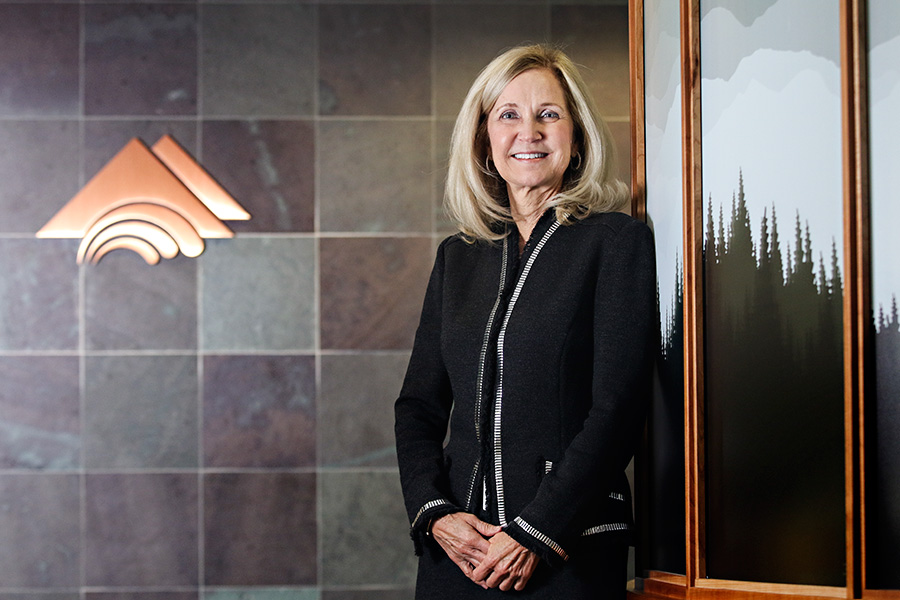When Pamela Robertson first heard of Kalispell, she had to Google it. Now she’s settled into her “slice of heaven,” as she says.
Robertson is the new CEO of Kalispell Regional Healthcare, having just completed her first month on the job. Robertson came from Corpus Christi, Texas, where she served in various executive roles since 2007, including president and CEO of a six-hospital system.
Now Robertson is taking charge of a growing hospital and health care system that is one of the largest employers in western Montana. KRH is currently in the process of developing the 190,000-square-foot Montana Children’s Medical Center, the largest pediatric health center in Montana, as well as an expanding emergency services department and the $12.9 million Digestive Health Institute.
Robertson sat down with the Beacon to discuss her career, her goals and her perspective of KRH. The conversation has been edited for length.
Beacon: You started as a radiology technician in Virginia, correct? How has that influenced your career?
Pamela Robertson: I think that that has been an amazing starting ground for me because when you start at an organization from the ground level, then your perspective as you move throughout the organization allows you to have an appreciation for what it’s like at ground zero. And having never lost that perspective, I think it has only enhanced my ability to relate and to identify with people … And I also think it’s inspirational because I didn’t finish an MBA program and enter leadership. So I think it’s inspiring for people to realize that with more education and hard work and dedication and commitment, the sky is the limit.
Beacon: When you first arrived here and checked out KRH, what stood out to you?
Robertson: Wow. We provide all of this here in Kalispell, Montana?
Beacon: It’s a bit exceptional, right?
Robertson: This is unique. We are a rural community by all definitions, but we have state-of-the-art health care. And to me, there are many gifts that are bestowed to KRH because we have wonderful people who support us, and KRH is a wonderful gift to the community.
Beacon: What are your goals and priorities now as CEO?
Robertson: For the first four weeks I’ve been here, I’ve been listening and learning, understanding the history and culture. And I think that the goals that we have set out at least in the short run, we have several major projects to complete so we can continue to enhance the services we provide. We will be seeing those through … All of those things are ongoing ways to enhance the care and services. Obviously the goal is to work with the team to bring those to completion … In health care we are changing so rapidly — the one thing you want to do is be very deliberate about any changes you make. And I think that is important for all of us, to take that time and be thoughtful as we help to continue to shape the organization going forward.
Beacon: The health care landscape is certainly shifting at every moment it seems. How does your mindset approach those changes?
Robertson: First of all, when I entered health care, we thought it was very complex then. It was simple compared to now. You turn on the news this morning and see Trump signed the executive order (removing requirements for benefits in the Affordable Care Act). What does that mean to us? What are the implications? For health care, because it is an evolving landscape, there is a lot of uncertainty, and we have to be flexible and have that agility to course correct. Directionally we know health care reform is here to stay in some form or fashion. Heath care is shifting with the responsibility being more to the providers … And the shift from volume to value is going to stay. That will continue to change. And we have our responsibilities for managing the delivery of health care and helping to improve the health status. I think those are all things we can probably say are here to stay. What may change is how we get reimbursed for them, those kinds of things. But I think in terms of the role we play, it’s pretty set.
